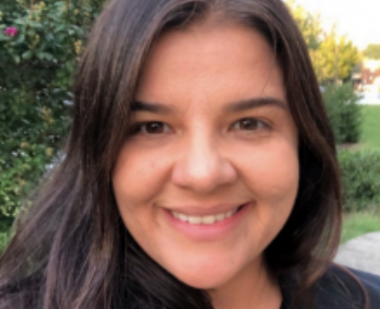
How School-based Personnel (such as Educators and Social Workers) Promote Equity for Immigrant Students
By Rebeca Schiller
Before studying for her doctorate, Dr. Sophia Rodriguez began her career in education as a middle and high school instructor, teaching in high-needs public schools that were racially segregated in New York City and Chicago; she primarily worked with English language learners. At one school in the South Bronx, many of the students experienced trauma from being homeless or living in impoverished conditions. Many of the students also had parents who had been incarcerated and lived within diverse family structures. As teachers, Rodriguez believed “… kids need to be socially and emotionally supported in order for them to be academically successful.” Often, students needed social and emotional support beyond what could be provided in the classroom, and so key personnel such as the one school social worker were tasked with supplying this support.
From her experience working in high-needs public schools, Rodriguez’s interest shifted to educational policy and sociology of education, specifically in urban education. Her professional experience, coupled with her studies, led her to research the systems and structures that are often not in place in immigrant-serving schools. The brunt of her research focused primarily on immigrant youth and their experiences in education barriers and social resources in a time that’s enmeshed with anti-immigrant sentiment.
Historically, social work in schools started between 1906-1907 in the United States. In 1913, the first Board of Education began a visiting teacher program, placing instructors in special departments of schools under the administration and supervision of the superintendent of schools. By the early part of the 20th century, school attendance laws were created to address illiteracy rates and the rights of children to receive a minimum education. Enforced attendance eventually led to the notion that schools needed attendance officers, which led to assigning that role to school social workers. While another important factor addressed educating children with different learning needs.
Rodriguez’s recent research along with colleagues Dr. Benjamin Roth from the University of South Carolina, and Dr. Leticia Villarreal Sosa, Dominican University, examines the many barriers to the equity that immigrant students face and how school social workers contribute to advancing equity. With a grant from the Spencer Foundation, Rodriguez and her colleagues built a survey in which 517 school social workers from 39 states took part to examine their role in how they support immigrant students.
To reduce inequality for immigrant students, the research findings show that school social workers play an important part in developing a deep trust between immigrant families and schools; school social workers connect immigrant families to crucial community services, like food pantries, legal and counseling services, and medical clinics. However, the research notes that building trust among students and families requires multiple outreach efforts from school social workers because of immigration fears. “We had a couple of preliminary findings, which included that school social workers strongly believe that immigration enforcement and policy affected kids, particularly at the beginning and throughout the Trump administration,” Rodriguez said.
Survey and interview respondents shared stories of having to navigate immigration enforcement and how it affects their students’ daily lives. To manage those issues, the research team discovered that apart from building a sound foundation of trust with immigrant families, they also require ongoing training concerning immigration policy and enforcement practices that they lack so that they can better serve their immigrant students. However, many school social workers, despite their attempts to advocate, face limited time and resources from their schools; for example, school social workers who have students that face deportation, which requires them to become an immigration advocate, learn the laws, and connect with politicians.
Because of these obstacles, Rodriguez and her team recommend schools and districts to come to the aid of school social workers by creating asset-based programs to help immigrant families and provide professional development to improve awareness of the needs of immigrant families. On the federal and stateside, policymakers pass legislation for funding school-based school social workers and other personnel in immigrant-serving schools, and lastly to implement national standards for training that apply to immigrant student communities.



